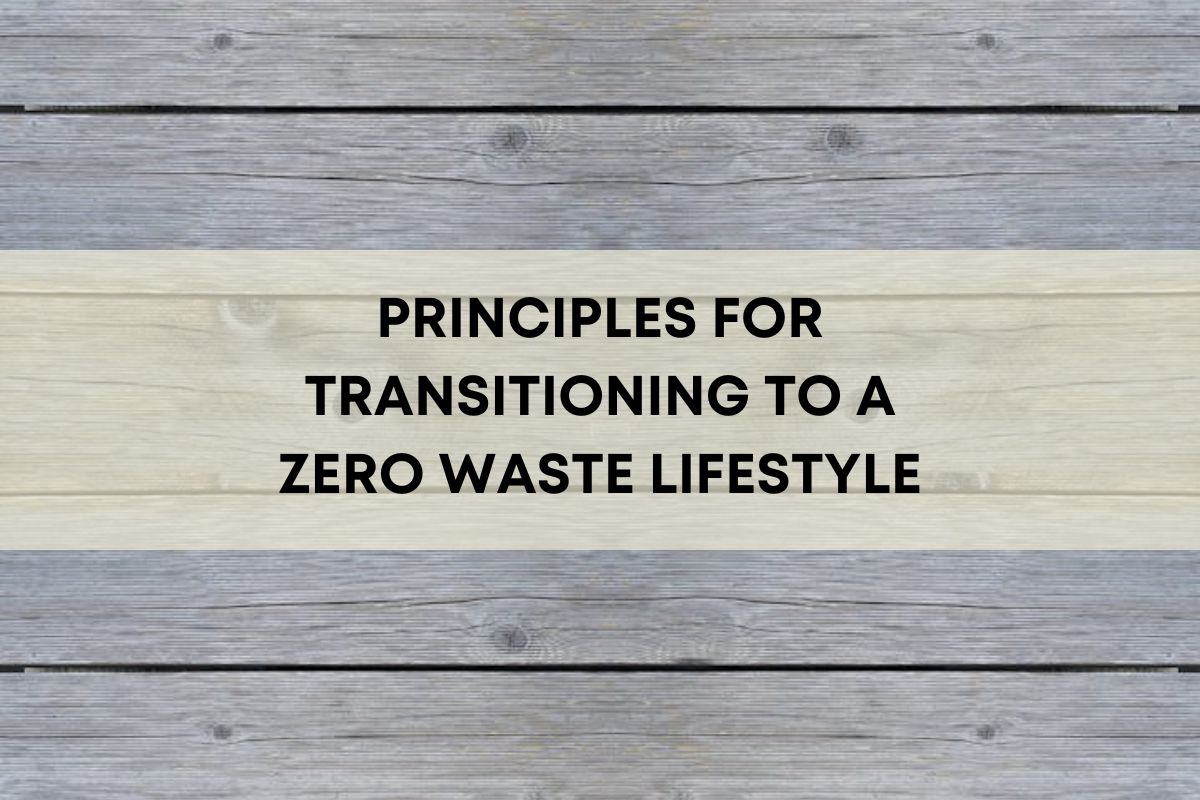PRINCIPLES FOR TRANSITIONING TO A ZERO WASTE LIFESTYLE

Interested in switching to a lower waste lifestyle? Many people want to make changes to live more sustainably but aren’t sure where to start. While everyone’s path will be different and there’s no right or wrong starting point, here are a few guiding principles to keep in mind if you’re just beginning, or if you’ve been doing this for a long time but need a reminder!
Everyone is at their own point on their own journey: don’t feel the need to compare yourself to others. Some people have been zero-wasting for a long time and have had the time to adapt their habits and consumption to fit in with this lifestyle. If you’re new to reducing waste, remember this is a marathon and not a sprint, so don’t sweat it by comparing yourself to others.
Don’t be intimidated by feeling the need to change everything at once. Many people discovering zero waste feel the urge to overhaul their entire lifestyles overnight, an impossible task that sets you up for frustration and failure. While it might be tempting and exciting to dive in head first and rush out to buy a bunch of sustainable products, small, gradual changes are more achievable and over time you’ll see what swaps work for you. There are plenty of small changes that can be made to set you on the right path without feeling overwhelmed. For example, if switching from conventional toothpaste to bulk tooth powder sounds like too much all at once, why not opt for an easier switch to a recyclable toothpaste tube like David’s? This is still a lower waste option and is more likely to stick with you if it fits better in your lifestyle.
Recent Blog Posts
Discover more tips on living #ZeroWaste!
-

Celebrating Women Makers: Women-Owned Brands at Tare Market
Celebrate International Women’s Day with Tare Market by supporting women-owned brands that are making a difference in sustainability and entrepreneurship. From eco-friendly clea...
Read more -

16 Ways to Start a Plastic-Free 2025
Kick off your New Year with a fresh start toward a plastic-free lifestyle! From simple swaps to learning about recycling and reducing waste, Tare Market is here to help you make...
Read more -

10 Sustainable New Years Resolution Ideas
Start the new year with 10 simple yet impactful sustainable resolutions that can transform your lifestyle and reduce your environmental footprint. From using reusable cups to sh...
Read more






